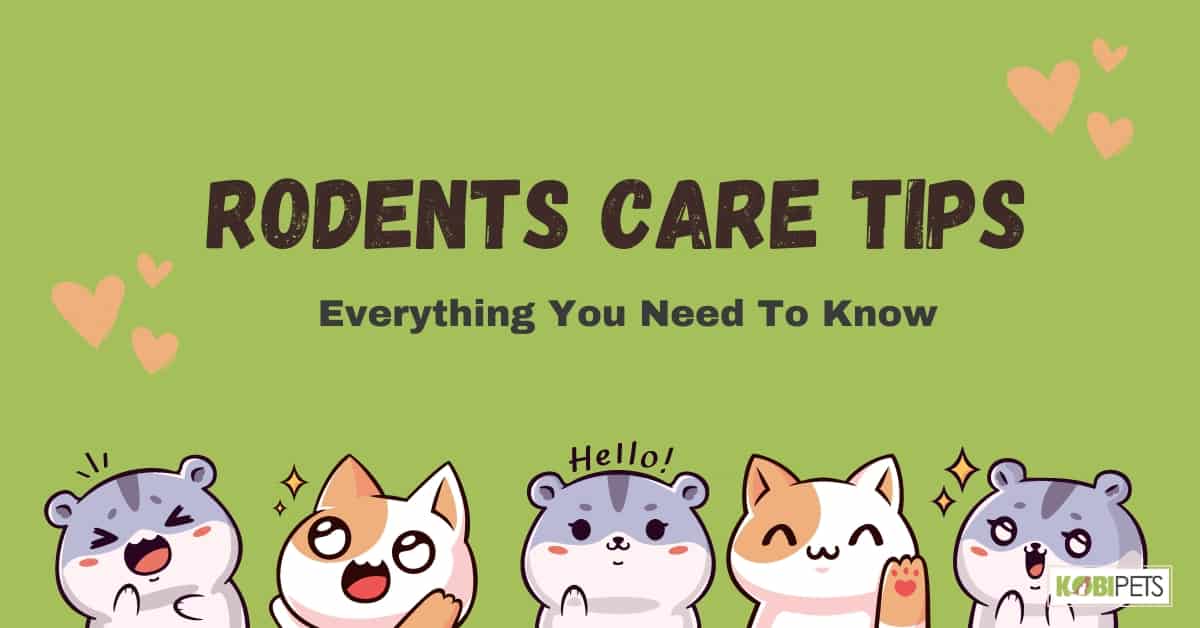
Caring for rodents as pets requires knowledge and understanding of their unique needs. This includes providing them with a balanced diet, regular check-ups with the vet, prevention measures against common health issues, enrichment activities to promote exercise and play, and socialization with other rodents.
From providing suitable housing to promoting socialization and exercise, this guide will cover everything you need to know about caring for rodents as pets – the health and hygiene requirements, what types of food to offer them, and more! So read on to learn how to provide your furry friend with the best possible care.
Types of Rodents for Pets
There are several types of rodents that can be kept as pets, including:
- Hamsters: One of the most popular rodents as pets, hamsters are small, cute, and easy to care for. They are nocturnal animals and come in a variety of breeds and colors.
- Guinea Pigs: Guinea pigs are social animals that enjoy interacting with their owners. They have a gentle personalities and make great first pets for children.
- Rats: Despite their reputation, rats are intelligent, affectionate, and easy to train. They make great pets for people who want a rodent that is more interactive than others.
- Mice: Mice are small, active, and playful. They are also relatively easy to care for, making them a popular choice for first-time pet owners.
- Gerbils: Gerbils are energetic, curious, and social animals that enjoy playing with their owners. They are also easy to care for, making them a good choice for people who want a low-maintenance pet.
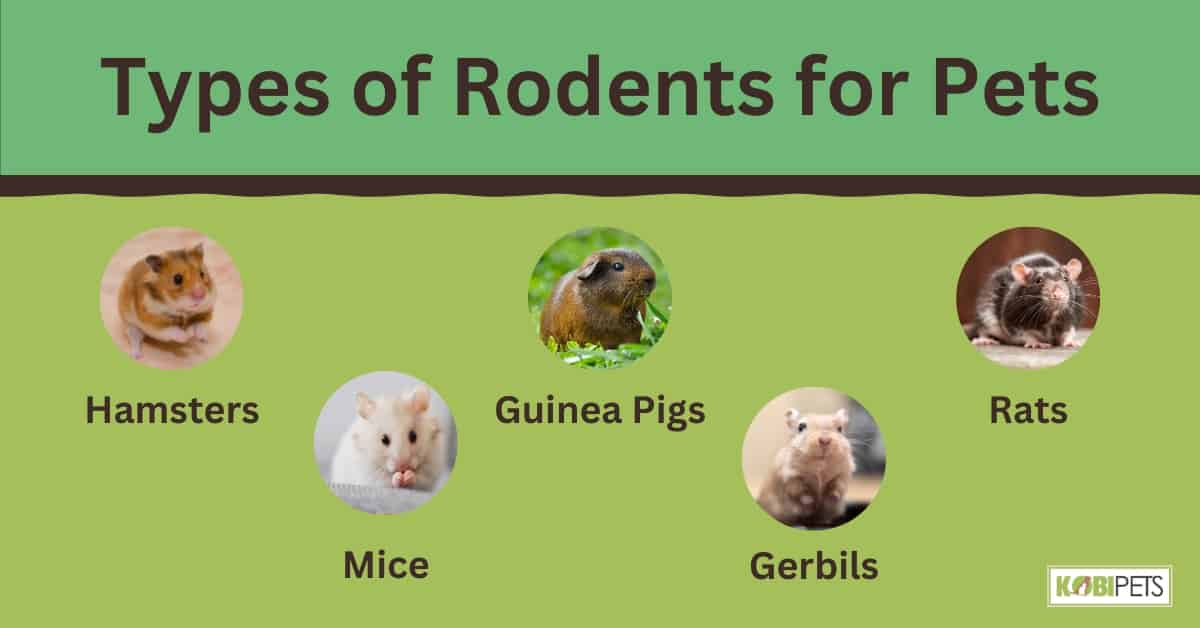
Types of Rodents for Pets
Housing
Size Requirements
When caring for rodents as pets, there are a few requirements that must be met in terms of size and space. In general, these small animals will require an enclosure that can house the entire rodent comfortably.
Additionally, if the rodent is one that prefers to spend some time outside of its enclosure, such as free-roaming hamsters or guinea pigs, then the available living space should be increased by at least four times larger than the standard enclosure size. Furthermore, when housing multiple rodents together in one enclosure it is important to make sure there is ample room so that everyone can feel comfortable and move freely without overcrowding.
Lastly, bedding materials should be regularly changed to ensure hygiene and good health. Enduring these housing requirements will help ensure your pet’s well-being and promote a healthy life for your furry friends.
| Size Requirements | Description |
|---|---|
| Cage | Should be large enough for the pet rodent to move around and exercise in, with plenty of room for food, water, and enrichment items. An appropriate cage size varies depending on the type of rodent you plan to keep. |
| Bedding | It should be absorbent, dust-free, and non-toxic. Wood shavings are typically not recommended due to the potential for an allergic reaction or respiratory issues stemming from the inhalation of wood dust. |
| Toys & Enrichment Items | Variety is key to keeping your pet entertained and happy! Appropriate toys can include tunnels, chew toys, noisemakers, cardboard boxes/tubes, treat dispensers or puzzles, etc. |
Appropriate Materials
When considering proper housing for your pet rodents, there are some important factors to take into account. First, the material of the cage is an essential element for their comfort and safety.
Plastic cages are lightweight, durable, and easy to clean; however, metal wires and bars are also popular options among rodent owners since they provide much-needed ventilation. Secondly, make sure that all of the materials used within the enclosure cannot be chewed or ingested by your rodent as even the smallest items may cause intestinal blockages; this includes bedding such as straws or shredded paper.
Additionally, if your region encounters particularly cold temperatures during certain months then it is beneficial to invest in a heated shelter for them during those times. All in all, providing appropriate materials for your rodent’s housing is essential for their health and well-being.
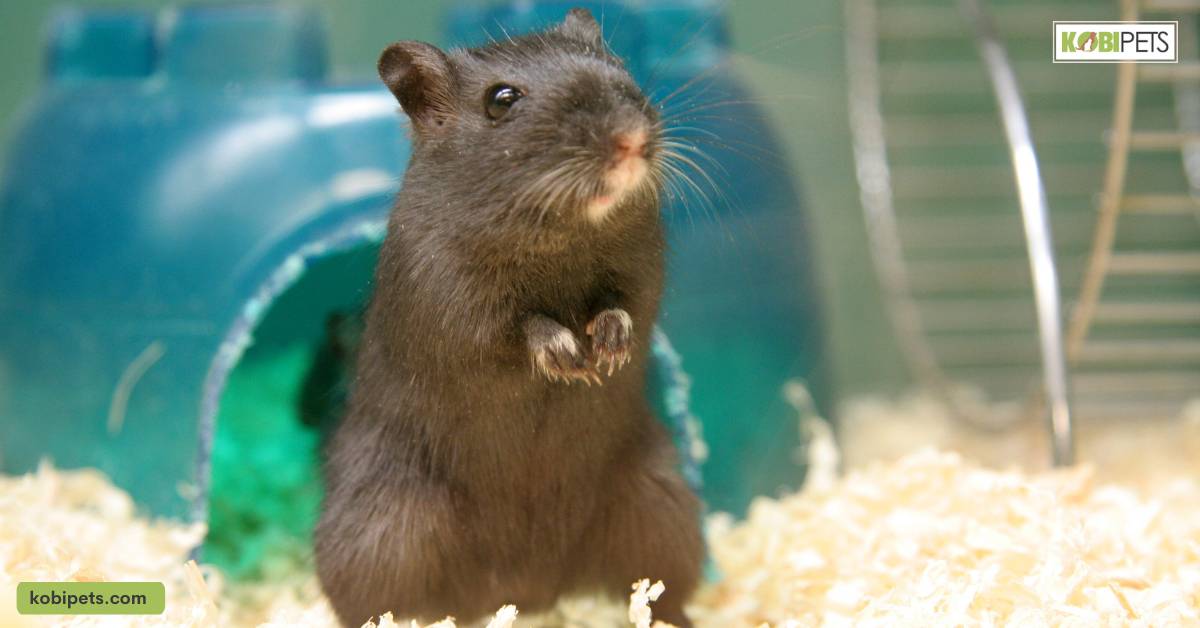
Cleaning and Maintenance
When keeping rodents as pets, cleaning, and maintenance of their housing is essential for providing them with a healthy environment and keeping them safe. It’s important to clean the cage regularly and completely by removing any soiled bedding, washing all surfaces with warm soapy water, and replacing any items that have been heavily used like toys or hideaways.
Also, remember to provide your pet with fresh food and water daily, clean their living quarters weekly and replace their bedding monthly. Taking the time to invest in these simple tasks will ensure they remain healthy while providing them an optimal living environment as well.
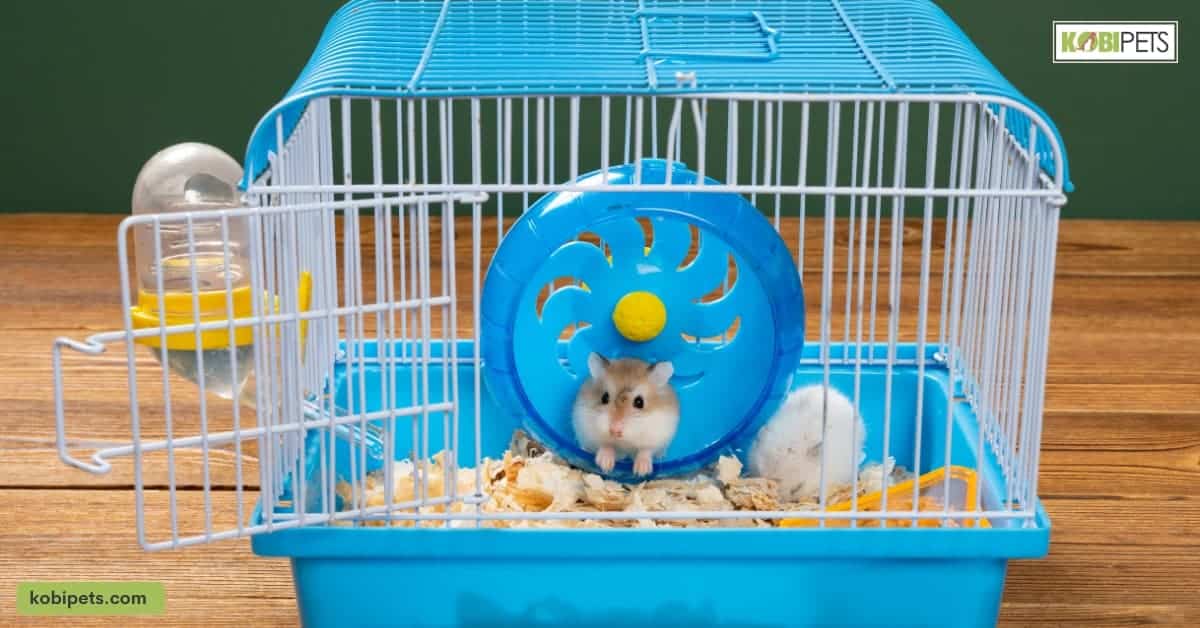
Feeding
Nutritional Requirements
Caring for rodents as pets requires knowledge and adherence to specific nutritional requirements. While many different types of food are suitable for rodents, such as nuts, seeds, grains, fruits, and vegetables, be sure to do your research on what is most suitable for the particular breed you have chosen.
It is important not to feed them processed meat or dairy products that could lead to digestive problems. Finally, rodents need access to fresh water daily and their food should never go dry or stale. It is advised to provide them with a varied diet which can include exciting items like mealworms or premium rodent formulas in order to keep them happy and healthy.
| Nutritional Requirements | Description |
|---|---|
| Protein | A good quality hay, balanced diet (pellets), or commercial food mixes are all good sources of protein. |
| Vitamins and Minerals | Supplementation with vitamins and minerals is sometimes required depending on the rodent species. Typically a multi-vitamin/mineral powder works best. |
| Fruits & Vegetables | Fruits and vegetables should make up approximately 10-15% of your rodent’s daily diet and may include items such as apples, berries, melons, carrots, greens (e.g., romaine lettuce, spinach), etc. |
Types of Food
Rodents make incredibly rewarding pets. From hamsters and gerbils to chinchillas, guinea pigs, and more, each type of pet rodent requires a balanced diet full of nutrition. Certain types of food are essential to the proper care and well-being of these beloved creatures; understanding the differences between them is key.
- Nuts (Almonds, Cashews, Walnuts, etc)
- Seeds (Sunflower, Pumpkin, Flaxseed, etc)
- Grains (Oats, Barley, Rice, etc)
- Fruits (Bananas, Apples, Berries, etc)
- Vegetables (Carrots, Celery, Broccoli, etc)
- Mealworms
- Premium Rodent Formulas
- Yogurt Drops/Treats
- Dried Fruits and Vegetables
Water Sources
With the rise in popularity of small rodents such as Guinea pigs, hamsters, and gerbils as pets, the need for water sources to support these animals is an important consideration. Animal caretakers should always strive to provide their pets with clean, safe drinking and bathing water.
Store-bought containers made of hard plastic are the most reliable source when it comes to supplying housing for rodents with a consistent source of water that they can’t easily tip over. Automated built-in self-fillers can also be an option in order to avoid constantly filling up water bottles on a daily basis.
Pet owners should consider adding some gravel or marbles to the bottom of the tank or bottle in order to reduce spills and messes associated with filling up these containers. Ultimately, by taking the necessary precautions and researching the best options for supplying your pet with all their needs including fresh, safe, and accessible water whenever possible you will be providing your furry friend(s) with a warm, comfortable home.
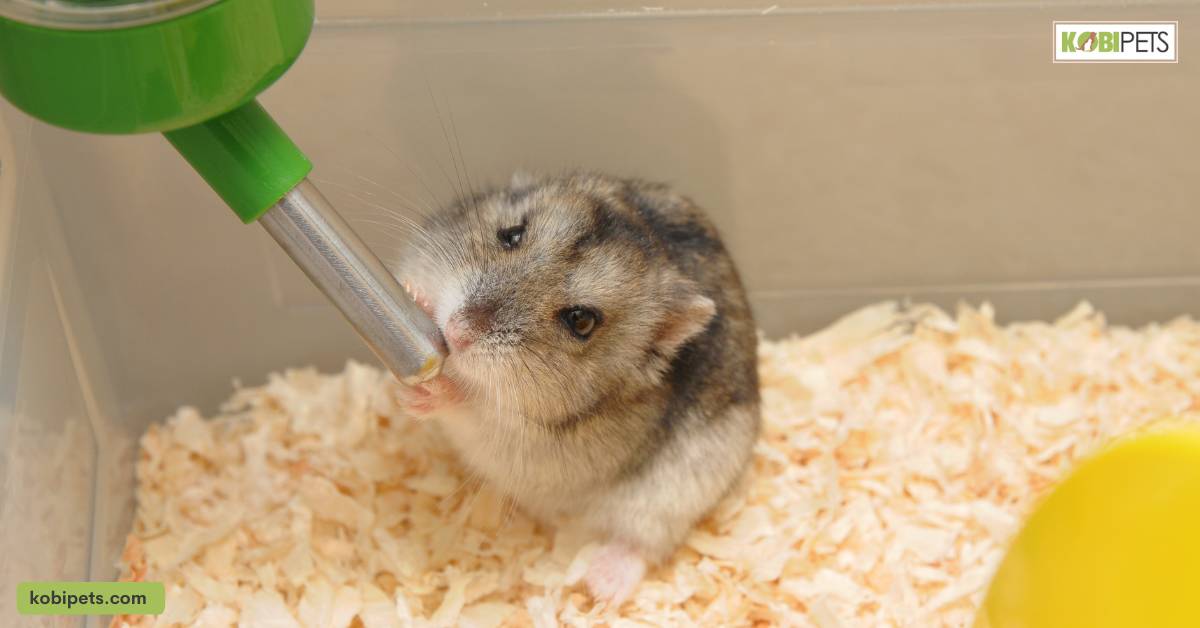
Health and Hygiene
Regular Check-Ups
Caring for a rodent pet can be incredibly rewarding and enjoyable, but it’s important to keep their health and hygiene at the forefront. It’s recommended that you take your pet to a veterinarian at least once a year for general checkups and more often if needed due to any underlying conditions.
Examinations should include checking for signs of dental disease, weighing, examining external parasites, testing for infectious diseases, checking fur and skin, listening to heart and lungs, etc.
Additionally, regular veterinary checkups will help ensure that dietary needs are being met and that your pet is otherwise healthy and remains safe from any potential risks or dangers posed by environmental changes or other factors. With proper care and regular checkups with your veterinarian, you can keep your furry friend safe and happy.
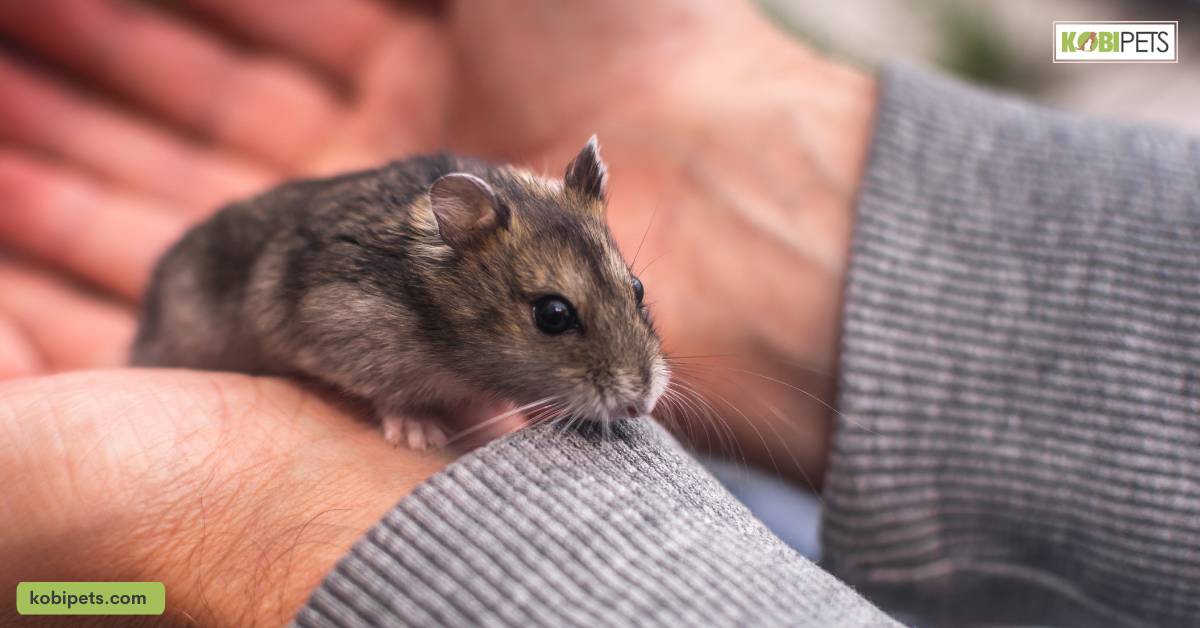
Common Health Issues
Caring for rodents as pets can be a rewarding but challenging experience. Common health issues tend to arise when rodent owners are unaware of the specific needs that these animals require in order to remain healthy, despite general care guidelines being straightforward and simple.
Knowing what kind of health issues to look out for is a crucial part of preventive maintenance and also helps to ensure your pet’s comfort and quality of life.
- Dental Disease – Overgrown teeth that require timely trimming by a veterinarian to prevent pain and discomfort.
- External Parasites – Fleas, mites, lice, or other parasites can cause irritation and infection in your pet rodent.
- Infectious Diseases – Bacterial or viral infections can have serious implications for a pet rodent’s overall health.
- Skin and Fur Conditions – Anything from matted fur to abscesses or fur loss can be indicative of underlying issues that need attention.
- Respiratory Issues – Coughing, difficulty breathing, sneezing, or wheezing can all be signs of respiratory problems.
- Neurological Conditions – Signs like seizures, paralysis, or disorientation can be indicative of neurological issues.
- Nutrition Deficiencies – Lack of a balanced diet can lead to nutrition deficiencies and an array of health problems over time.
- Overheating – Rodents have difficulty regulating their body temperature, so it’s important to ensure they have access to a cool area in the summer.
- Obesity – Too much food or too little exercise can lead to weight-related issues that are uncomfortable for your pet and can reduce their lifespan significantly.
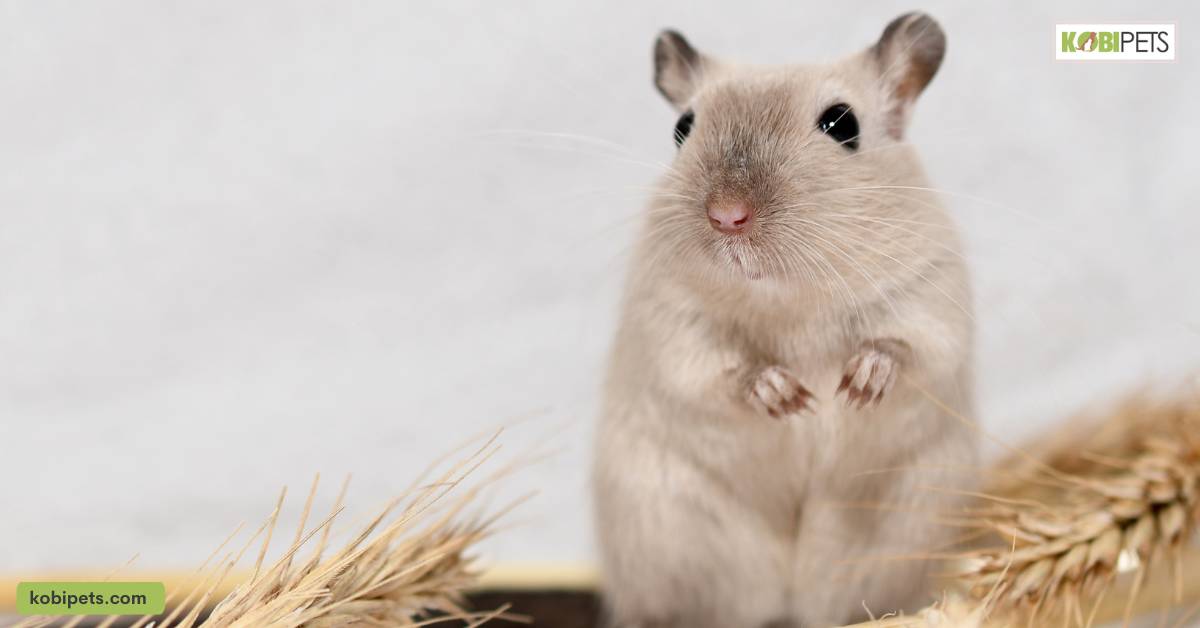
Preventative Measures
Rodents can be loyal, engaging companions if well cared for. However, despite their size and reputation, rodents need a certain level of care in order to stay healthy. Preventative measures are the best way to ensure that your rodent stays healthy and happy.
Regular brushing of your pet’s fur will help reduce the spread of hairballs, which can cause health issues if left unattended. Since rodents have teeth that never stop growing, it is essential to provide them with chewable toys and objects so they do not gnaw on dangerous materials such as cords or furniture.
Parasites such as ticks, lice, and fleas can be a major health concern for rodents and regular inspections should be done to check for any unwelcome critters trying to make a home on your pet. Rodents may also require medical attention throughout their lives especially since they age rapidly; regular checkups will ensure that any illnesses or injuries are diagnosed quickly so treatment options can begin earlier rather than later.
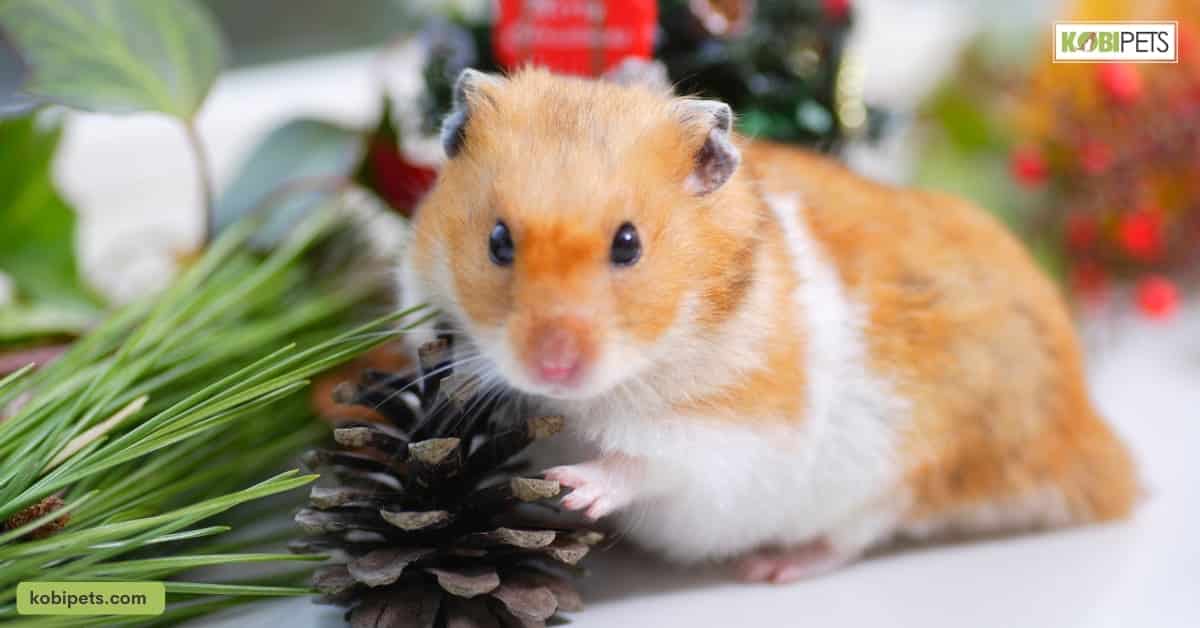
Exercise and Play
Enrichment Activities
For those that care for rodents as pets, there are many options to consider when it comes to providing them with regular exercise and activities. Playing with your pet can increase their physical activity, aid in problem-solving skills, provide mental stimulation and lead to healthier habits like grooming.
Common enrichment activities include obstacle courses, hide-and-seek games, tunnels, mazes, and toys made specifically for rodents. Motorized tunnels and various sensory elements can also be used to add another layer of engaging experiences.
Incorporating scent into play or exploring activities can be a great way to stimulate a rodent’s sense of smell. When shopping for enrichment tools make sure they are pet-safe: check the material list on any purchased items before offering it to your small friend.
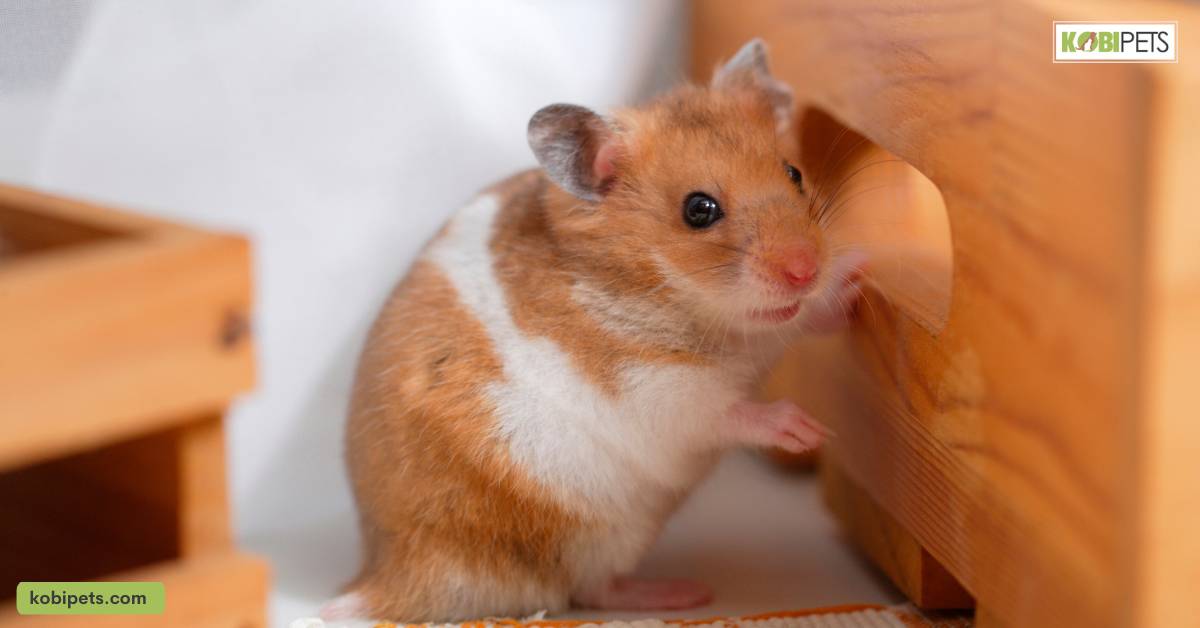
Appropriate Toys
When caring for rodents as pets, providing toys designed to promote aerobic exercise and play is a great way to ensure the health and well-being of your pet. Options can include toys such as small running wheels, ladders, hanging bridges, or roundhouses – all of which should be sized appropriately for your rodent’s size.
Additionally, cardboard tubes or paper-based nesting materials can provide additional opportunities for exploration and play. Just remember that whatever toy or material you select should be chew-proof in order to ensure the safety of your pet!
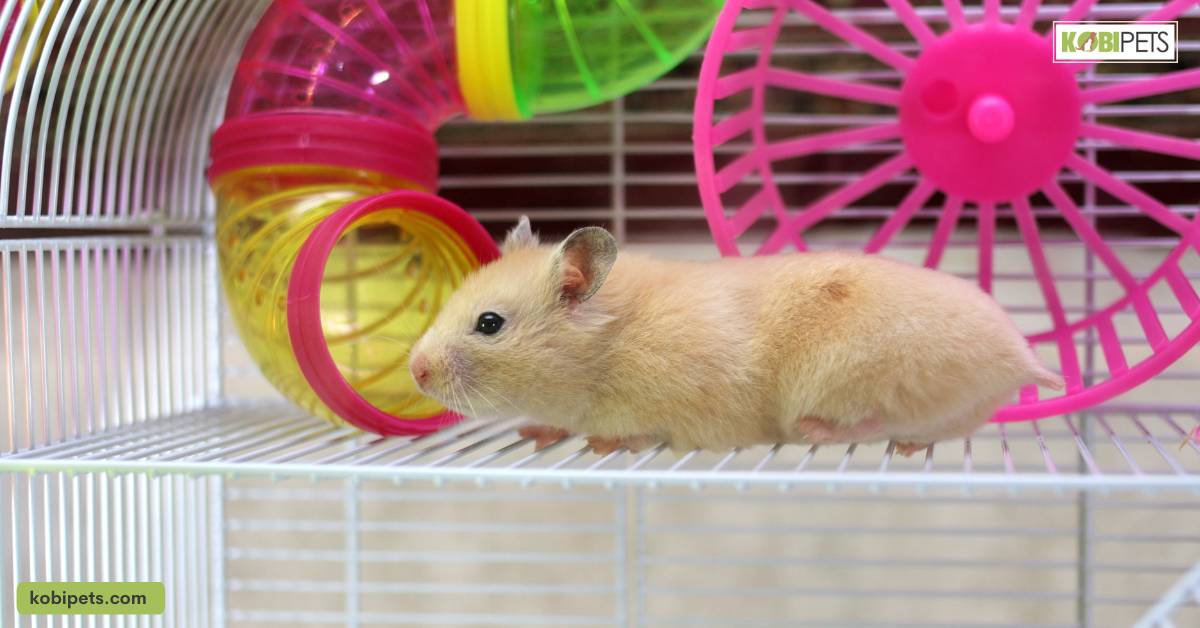
Socialization
Interacting with Your Rodent
Playing with and handling your rodent is an important part of their socialization. The quantity, frequency, and type of interactions are all factors to consider when determining how much physical contact your pet needs.
Start out slowly with a few minutes of gentle petting or holding each day, working up to more time as your furry friend becomes accustomed to your presence. It is best practice to approach the rodent from the front, avoiding sudden or aggressive movements that could startle it.
You can also opt for offering treats or inviting them to play games like “tag” with a paper ball to help familiarize them with you in a positive way. Allowing their feet and nose to access the same surfaces that you touch to maintain scent familiarity is another great way to promote bonding between you and your rodent companion.
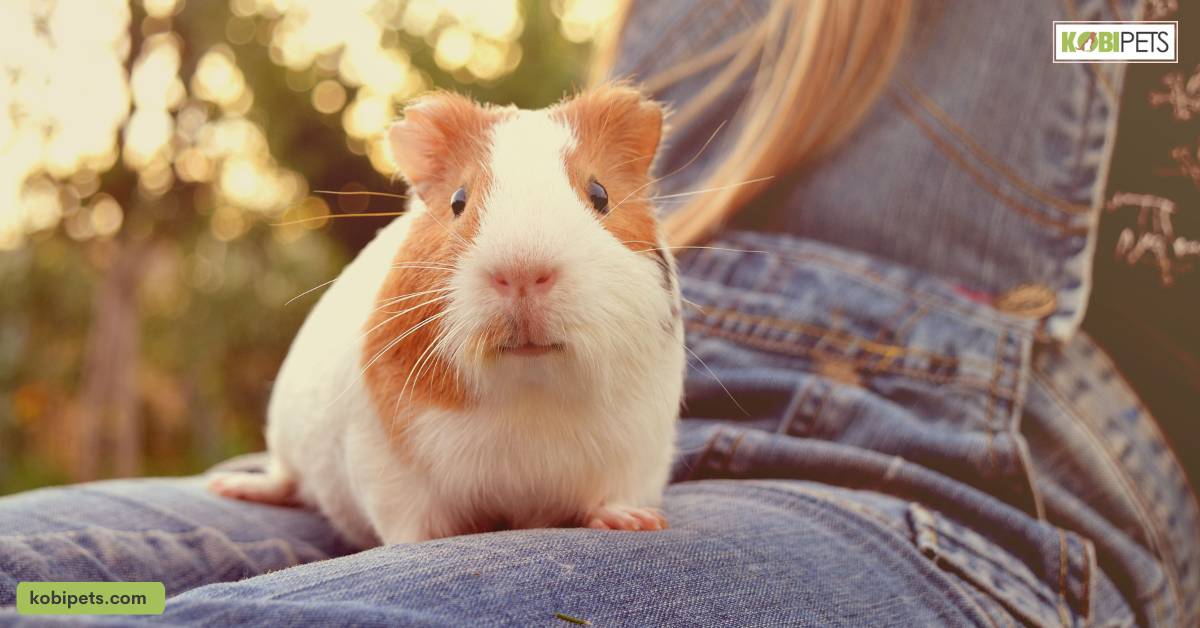
Bonding with Other Rodents
When caring for rodents as pets, socialization is a key factor for a strong human-animal connection. Just like us humans, it’s important for them to interact socially with others of their species. Rodent owners can encourage socialization between their furry friends by having extra playtime and introducing new toys or activities.
To strengthen the bond even further, they can buy 2-3 pet rodents that are the same age and gender so they can all play together and keep each other company. Regularly exposing them to different textures, sounds, movements, and smells also helps create positive experiences that can shape their behavior.
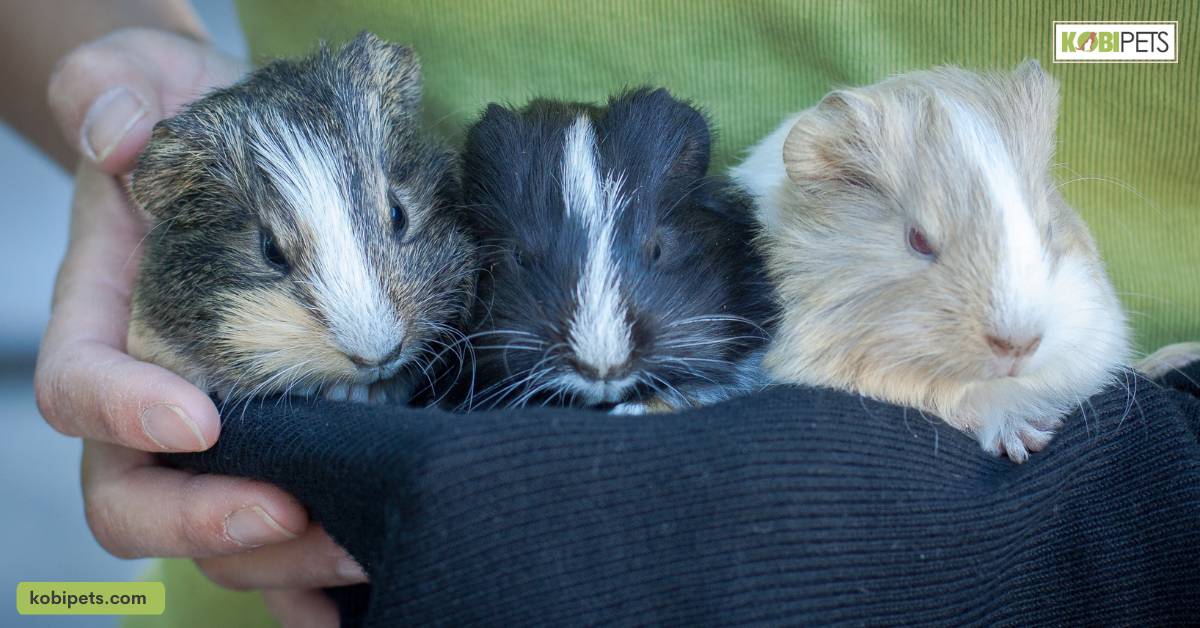
In Conclusion
Ultimately, caring for rodents as pets has its unique challenges, but with knowledge and dedication, you can ensure the health and well-being of your furry friends. From providing ample housing and a balanced diet to understanding their needs around health and hygiene, exercise and play, and socialization – it’s crucial that you understand what steps must be taken to ensure their health and happiness.






